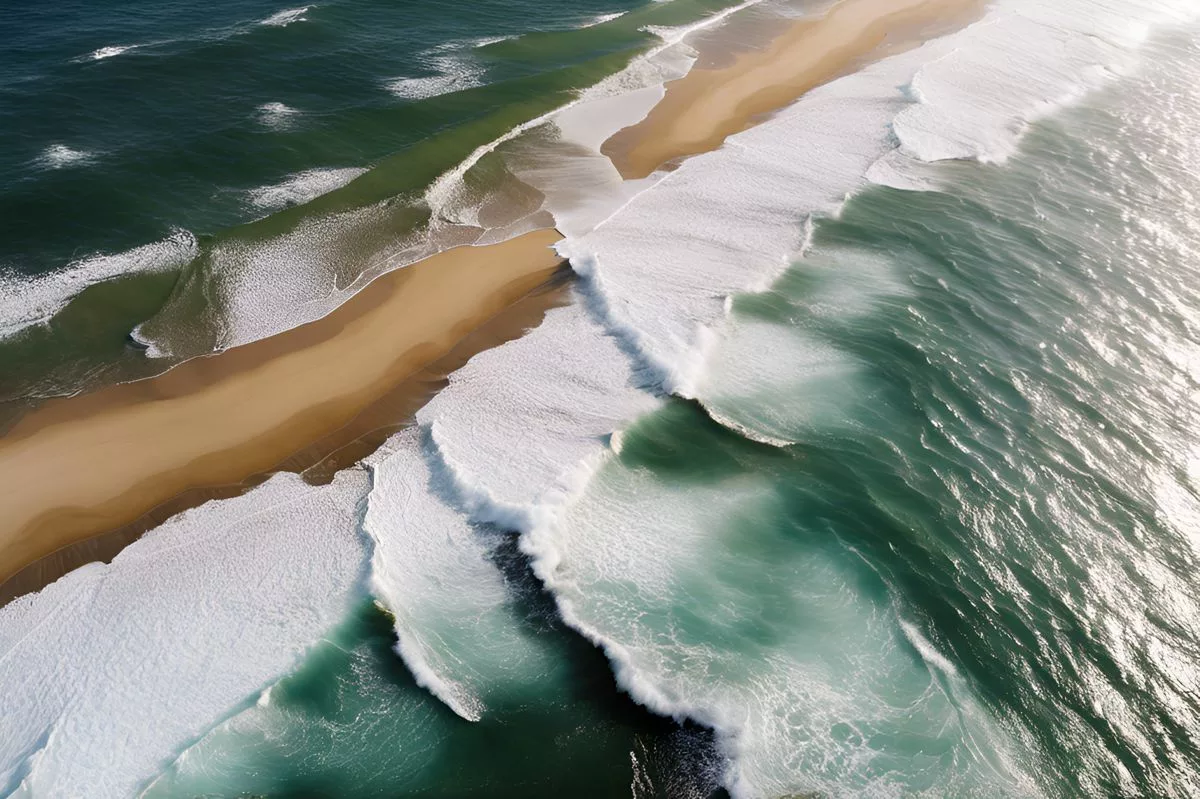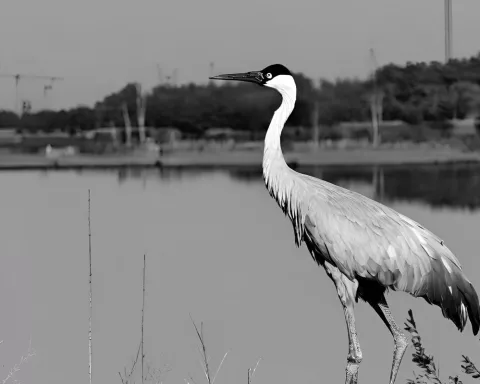When a fishing vessel sank off the South African coast, neighbouring fishing boats and rescue organizations sprang into action, leading to the recovery of nine out of twenty local fishermen. Despite the intensive air and sea search, the fate of the missing eleven fishermen remains uncertain. This event highlights the unity and resilience of the maritime community, always willing to put their own safety on the line to save others.
A Gallant Endeavour at Sea: In Pursuit of Lost Fishermen on the Atlantic Borders
When a fishing vessel started to sink off the South African coast, the National Sea Rescue Institute sprang into action. Neighbouring fishing boats raced towards the crisis site, leading to the recovery of nine out of the twenty local fishermen stranded on a life raft. Mobilising forces for rescue, numerous organizations and services were put on high alert for any further developments. Despite the intensive air and sea search, the fate of the missing eleven fishermen was still uncertain. This event underscores the unity and resilience of the maritime community, always willing to put their own safety on the line to save others.
A Dire Situation off the South African Coast
On an ill-fated Friday, a distressing sequence of events unfolded off the South African coast. When a fishing vessel started to sink roughly 30 nautical miles off the Atlantic Seaboard, the duty crews of the National Sea Rescue Institute (NSRI) Hout Bay and Table Bay leapt into action. In a fortunate stroke of luck, a mayday distress call was intercepted around 15:30 by Telkom Maritime Radio Services, who quickly relayed the message to nearby ships.
The swift response of neighbouring fishing boats was an extraordinary feat in such a distressing scenario. Fuelled by a deep-seated sense of brotherhood, about five fishing vessels raced towards the crisis site. Their relentless pursuit led them to a life raft, a beacon of hope amidst the ocean’s despair. In an uplifting development, they managed to retrieve nine out of the twenty local fishermen stranded on the raft. The surviving crew, thankfully unscathed, were later brought to the Port of Table Bay by their saviours and handed over to their fishing enterprise.
Mobilizing Forces for Rescue
The rescue operation truly showcased the power of community and collaboration. Without hesitation, NSRI Hout Bay’s rescue crafts, specifically the Nadine Gordimer and Albie Matthews, along with NSRI Table Bay’s DHL Deliverer were launched. Numerous organizations and services, such as the SA Police Services’ Sea Borderline Control, Water Policing and Diving Services, the Disaster Risk Management, Cape Town Fire and Rescue Services, and the City of Cape Town Law Enforcement Marine Unit, were all put on high alert for any further developments.
Playing a crucial role in the coordination of the search and rescue operation were the Port of Table Bay Port Control of the Transnet National Ports Authority, along with NSRI duty controllers. Working hand in hand with the Maritime Rescue Coordination Centre, they managed to guide three NSRI rescue crafts to the search area. These vessels added to the fleet of fishing boats already scouring the sea for the remaining eleven fishermen.
Battle Against the Elements and Unknown Fate
The task at hand was far from easy, with the sea presenting swells of three to four meters and gusts of wind reaching 10 to 15 knots. The fishing vessel, now lost to the sea, seemed to have sunk for reasons that are still under investigation. While both of the vessel’s life rafts were discovered, the fate of the missing eleven fishermen was, regrettably, still uncertain.
The search operation was ramped up by the involvement of Aerios Global Aviation, which dispatched both a helicopter and a fixed-wing aircraft to the search site. Despite the intensive air and sea search, the remaining fishermen could not be found.
Vigilance, Hope, and Solidarity Amidst Despair
The grave situation didn’t deter the resolve of those participating in the rescue operation. Telkom Maritime Radio Services continued their relentless efforts by assisting with marine VHF radio communications and issuing an ‘all ships alert’ to maintain constant watch. Their appeal was simple yet pressing: asking any vessels in the vicinity to stay on high alert.
This event cast a gloomy cloud over the fishing community. As they wait with bated breath for news of their comrades, their hearts are filled with both hope and anxiety. As the search operation carries on, the minds and hearts of many are with the families of the missing fishermen and the fishing enterprise during this difficult period.
This tragic event brings to light the unpredictable and dangerous nature of the sea, and the risks these courageous fishermen undertake daily. It also underscores the unity and resilience of the maritime community, always willing to put their own safety on the line to save others.
What happened off the South African coast?
A fishing vessel started to sink off the South African coast, leading to a distressing situation where twenty local fishermen were stranded on a life raft.
How did the maritime community respond to the situation?
The National Sea Rescue Institute (NSRI) and neighbouring fishing boats sprang into action, leading to the recovery of nine out of twenty local fishermen. Numerous organizations and services were also put on high alert for any further developments.
What organizations and services were involved in the search and rescue operation?
The SA Police Services’ Sea Borderline Control, Water Policing and Diving Services, Disaster Risk Management, Cape Town Fire and Rescue Services, City of Cape Town Law Enforcement Marine Unit, Port of Table Bay Port Control of the Transnet National Ports Authority, and Maritime Rescue Coordination Centre were all involved in the coordination of the search and rescue operation.
Was the search operation successful?
Despite the intensive air and sea search, the fate of the missing eleven fishermen was still uncertain. Both of the vessel’s life rafts were discovered, but the remaining fishermen could not be found.
What does this event highlight?
This event highlights the unity and resilience of the maritime community, always willing to put their own safety on the line to save others. It also emphasizes the unpredictable and dangerous nature of the sea, and the risks these courageous fishermen undertake daily.
What is the current state of the fishing community?
The fishing community waits with bated breath for news of their comrades, their hearts filled with both hope and anxiety. The minds and hearts of many are with the families of the missing fishermen and the fishing enterprise during this difficult period.












